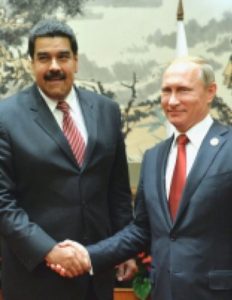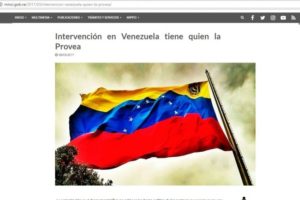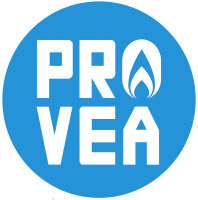
Credit: Wilson Center
Venezuela’s regime is consolidating control, and prospects for a peaceful transition appear increasingly bleak, notes Eric Farnsworth, VP of the Americas Society/Council of the Americas. The support of Cuba, Russia, China, Turkey and other authoritarian states has allowed Maduro to work around the global sanctions system, he observes.
The U.S. will step up a sanctions campaign on Venezuela’s oil sector and will be more aggressive in punishing people and companies that violate it, Reuters reports (HT:FDD).
U.S. sanctions against Rosneft Trading, SA, imposed in February 2020, “jeopardize Moscow’s existing approach to Venezuela, which relies heavily on the energy sector,” Russian scholar Vladimir Rouvinski argues in Russia’s Continuing Engagement with Venezuela in 2019 and Beyond – An Update. For the first time since the collapse of the Soviet Union, “Russia managed to veto Washington’s attempt at regime change in a country of the Western Hemisphere friendly to Russia,” he adds in the Wilson Center report.
Despite the clear historical echoes, the cause of the crisis in Venezuela is not merely the familiar, fanatical application of Marxist theory, notes Anne Applebaum, a senior fellow of the Agora Institute at Johns Hopkins University.

PROVEA
If some elements of recent Venezuelan history sound amazingly like a replay of Soviet history, other elements strongly resemble the more recent histories of Russia, Turkey, and other illiberal nationalist regimes whose leaders slowly chipped away at civil rights, rule of law, democratic norms, and independent courts, eventually turning their democracies into kleptocracies. This process also took place in Venezuela. Like the destruction of the economy, the destruction of the political culture took some time, because there were several decades’ worth of democratic institutions to destroy, she writes for The Atlantic:
Rafael Uzcátegui, an activist who runs PROVEA (Venezuelan Education-Action Program on Human Rights), told me that the country’s rulers had tried to redefine the problem: “They said everything that we understood as human rights was a ‘liberal hegemonic imposition.’” They also created parallel institutions—such as the Bolivarian Alliance for the Peoples of Our America, Chávez’s version of the Organization of American States—to limit the influence of established multinational bodies and global human-rights groups inside Venezuela.
 Venezuela does represent the conclusion to a lot of processes we see in the world today – the endgame of ideological Marxism; the culmination of the assault on democracy, courts, and the press now unfolding in so many countries; and the outer limit of the politics of polarization, adds Applebaum, a board member of the National Endowment for Democracy (NED).
Venezuela does represent the conclusion to a lot of processes we see in the world today – the endgame of ideological Marxism; the culmination of the assault on democracy, courts, and the press now unfolding in so many countries; and the outer limit of the politics of polarization, adds Applebaum, a board member of the National Endowment for Democracy (NED).
But I don’t want, as so many have done, to treat Venezuela as just a symbol, she notes. It’s a real place, and the hardships faced by the people who live there have not ended, the goal should be to help real Venezuelans, not to further an ideological argument, especially as the humanitarian and political crises deepen and spread. RTWT







